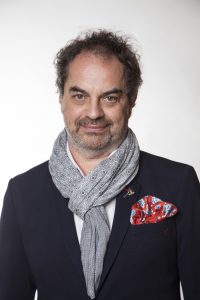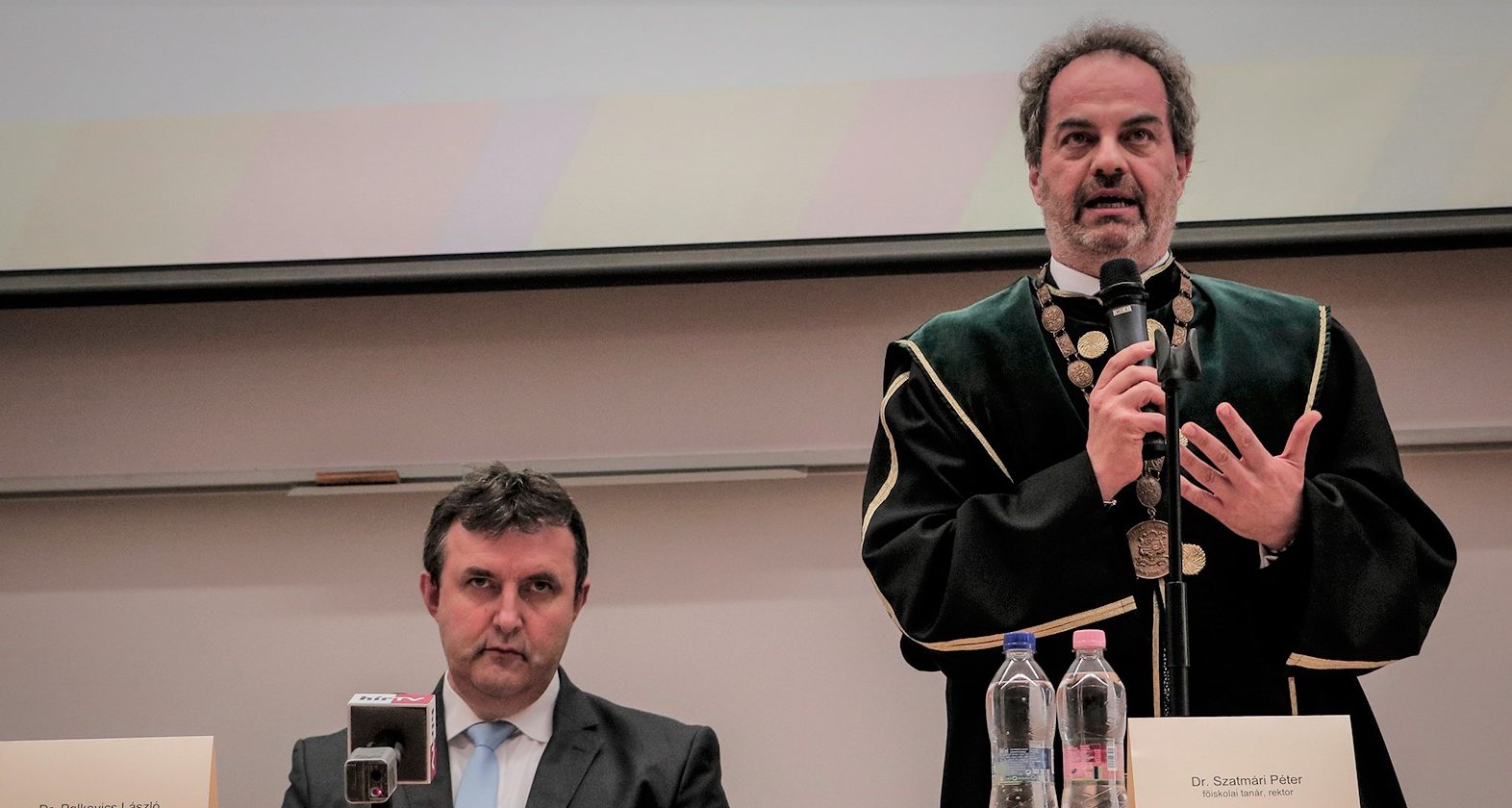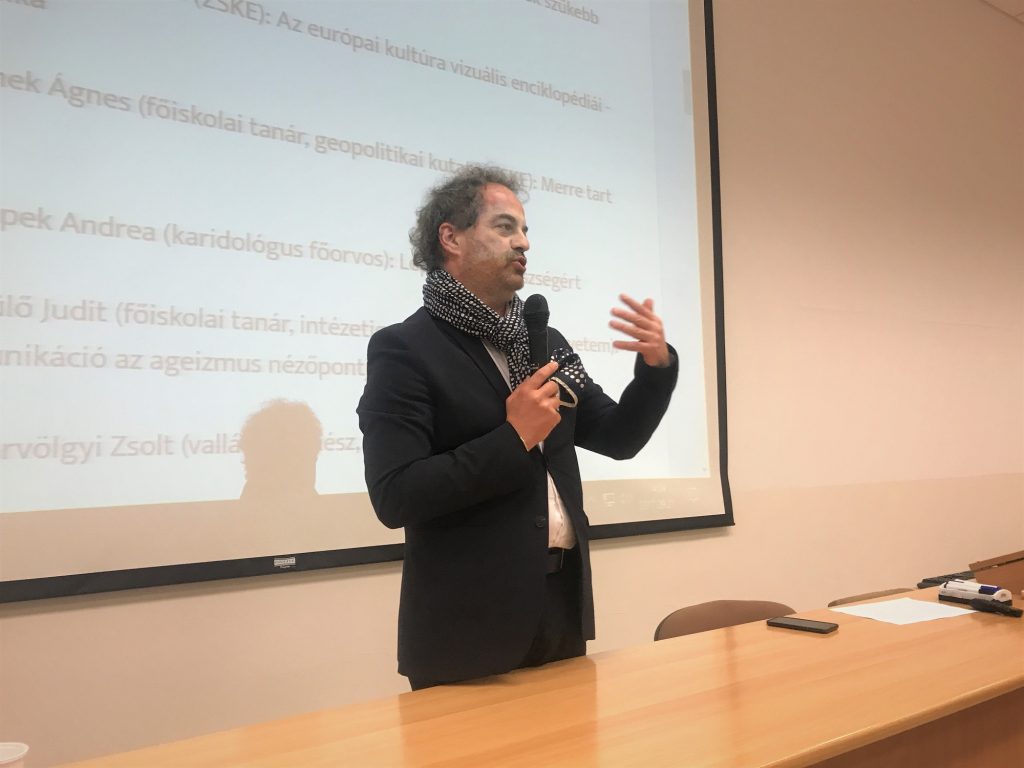Interview with Péter Szatmári, the Rector of Milton Friedman University
The new name of the King Sigismund University is Milton Friedman University, which will also have a new role in the higher education market. Dr. Péter Szatmári, the Rector of the university, works for the institution for more than a decade. In the beginning, he was a college instructor. Today, he is the rector. Thereby, he has a very close perspective of the college and university education. In his opinion, the work in innovation and education will decisively influence the economic development of Hungary for the coming years and the progress of our competitiveness – GLOBS Magazine.
GLOBS: You have been working at the University for more than a decade. In the beginning, you were a college instructor. Today, you are the rector. How much has the higher education system changed during this time?
Rector Péter Szatmári: The higher education system has changed a lot, just like our institution. In the 2000s, a fundamental change has begun in the Hungarian higher education market. Ecclesiastical institutions showed up, along with private institutions. In the beginning, there was a significant struggle among these institutions, in order to gain reputation. People had to understand that private institutions don’t sell degrees, but they do sell services. It is very important. 18 years ago, that was our basic principle, when the institution was opened. I joined this team 16 years ago. Since then, we managed to build up a very solid and well-going brand. This work showed its results. In 2016, we got the “University of Applied Sciences” status from the higher education governance.
GLOBS: How did the university change after receiving this status? Therefore, it is very important in the perspective of competitiveness as well…
Szatmári: We had no problem with the transformation. Providing professional academic knowledge was already a part of our philosophy. On the other hand, we tried to channel our students to the labour market. This status is the confirmation of the successful work we achieved. According to our experiences, nearly 90% of our graduates manage to find job within 3 months in the area of their qualifications. The payment category of our students is very close to the Corvinus University of Budapest and the Eötvös Loránd University. I think, the “University of Applied Sciences” status is an opportunity, which further strengthens our portfolio.
GLOBS: Is the world of sciences interchangeable with the world of practicality?
Szatmári: It is interchangeable only if we provide massive academic knowledge to our students since the beginning of the training. Besides, we introduce them to the labour market in the first semester. We invite professional and practical specialists, who instruct their daily profession during the training. Our students spend at least one semester with professional practice.
 GLOBS: Do students expect to find a place in the labor market immediately?
GLOBS: Do students expect to find a place in the labor market immediately?
Szatmári: In the case of this type of institutions, it is a clear expectation. They expect outstanding quality service, in exchange for the tuition fee. My responsibility is to open for our students the labour market. We developed a competence training right in the beginning of their studies. We are trying to measure and observe the needs of each student, as well as their personal qualities. However, students are free to change their mind and choose a different path of education in the meantime.
GLOBS: How much have the interests of the students changed during this one and a half decade?
Szatmári: On the one hand, the popular courses remained popular. For instance, the business course is always the favorite. Interestingly, the popularity of the communication course is not always confirmed by the labour market. It is not easy to find a job. We had to develop relevant brands and specializations for the students. There is one more conspicuous change. The diversity of students has changed completely, just like the way to instruct and educate them. Reading habits changed fundamentally. Knowledge became virtualized. The content gets processed through a very different system of tools. Therefore, we are expected to change as well.
GLOBS: In the case of a university instructor, what are the necessary qualities and abilities to be able to address a student?
Szatmári: We have to be excellent educators. Now, the university provides the framework for the students, just like the elementary school and the high school before. This is the “family” where they can feel safe. We pay special attention to that. It is important to provide a safe environment for them, and we have to enforce that. We have to act as mentors. Moreover, the good presentation skills are very important. Today, it is not enough to provide content, but it has to be delivered professionally for the students. It is very important to know this space for providing the proper orientation of our students.
GLOBS: How did you personally manage to adapt yourself to this?
Szatmári: Luckily, I have 3 children who always keep me under control. The other important standpoint is to be very knowledgeable, and to be present in in all kinds of information sets constantly. It is required because we need to provide orientation. We have to possess information in politics, economy, society, sport, etc. We have to read and gather knowledge. We also have to train ourselves and practice the presentation techniques regularly. Although I am the head of the institute know, I did not stop teaching. I did not put that aside. I think, one cannot understand what’s going on around him and in the minds of students without this impulse. It is required to know the needs and feelings of every age group. No matter if the person is 18, 25, 40 or even 60 years old. It is required to know the needs, desires, thoughts of every age group, in order to keep the attention during your lecture. The static and textual presentation is useless for today’s children. We need to use more and more visions, images and moving pictures, in order to keep their attention.
GLOBS: How do you personally teach? Do you have your own method?
Szatmári: I was preparing for teaching since my childhood. There is certainly some sort of passion inside me, which is sensible for the students. I am trying to read more than the average, and I am spending my time efficiently. I always prepare for the subjects I instruct again and again. I do not think routine is the right way. I obviously have routine after 25 years of teaching. However, I always observe the reactions of the audience during my lectures. In case I experience disinterest, I am able to change the topic quickly. Anything can be presented on an interesting way.
GLOBS: You have spent a lot of time abroad as a scholarship student. How do you see the differences among higher education systems? What is worth to take over?
Szatmári: In my opinion, we are in a very good position concerning the content and academic knowledge. In the western countries, practical education is clearly on a more professional level. Furthermore, they are able to use the individual abilities in education more effectively. The mobility of the Hungarian students is below average, which is a fundamental difference. It is not good, because it is important to discover the European space, no matter where we were born. I always tell my students that it is essential to spend some time abroad, in order to get acquainted with a completely different culture. Furthermore, it is important to visit a foreign language environment, in order to learn the language or experience the differences in lifestyles.
GLOBS: What do you think about the Bologna education system? Is it proved to be efficient?
Szatmári: It triggered many disputes. In certain educational areas, it is hopeless to implement However, we managed to fix these issues. For instance, it was not relevant in the teacher’s training. Legal and medical education required to keep the traditional educational system. In the case of other areas, it turned to be efficient, providing great opportunities. Therefore, a student is allowed to go abroad or to another institution, during every segment of the training.
GLOBS: The new name of your institution is Milton Friedman University. The new label will bring new identity…
Szatmári: Rebranding is not the only essential thing to further expand beyond the Hungarian market. We need to create new content for the new identity. Our work so far proved to be very good. However, the market declares more and more severe requirements. We always have to come up with new ideas.
GLOBS: There are many new subjects in the university. There is the Sports Facility Management course, which is unique in Europe. What special knowledge do students get here?
Szatmári: There is no such fusion training either at home or in Europe. However, there are many facilities being built all across Europe, where such specialists are needed. I am talking about sports facilities in general. These facilities can be swimming pools, sports halls or community areas. In many settlements, the sports facility provides the meeting venue. We need to train specialists who are qualified in sports. Furthermore, these specialist should be able to organize the communities in these spaces, and operate them economically. Finally, they have to know how to organize and communicate the events. In my opinion, it is a very complex training, which makes us unique in the market.
If you would like to read more interesting articles on GLOBS Magazine, please click HERE
or you can buy online The GLOBS Magazine on DigitalStand
Source: by Andrea GLÖCKL-HAJDÚ, Journalist – GLOBS Magazine
please make a donation here
Hot news
What happened today in Hungary – 26 July, 2024
Drama: number of births in a 20-year low in Hungary
Yay or nay? – 6 odd Hungarian delicacies that make our skin crawl
Budapest tourism “exploded” this past weekend
Container transport in Budapest may stop: How will this affect Hungarian economy?
Minister: Hungary will protect its territory by every means possible





